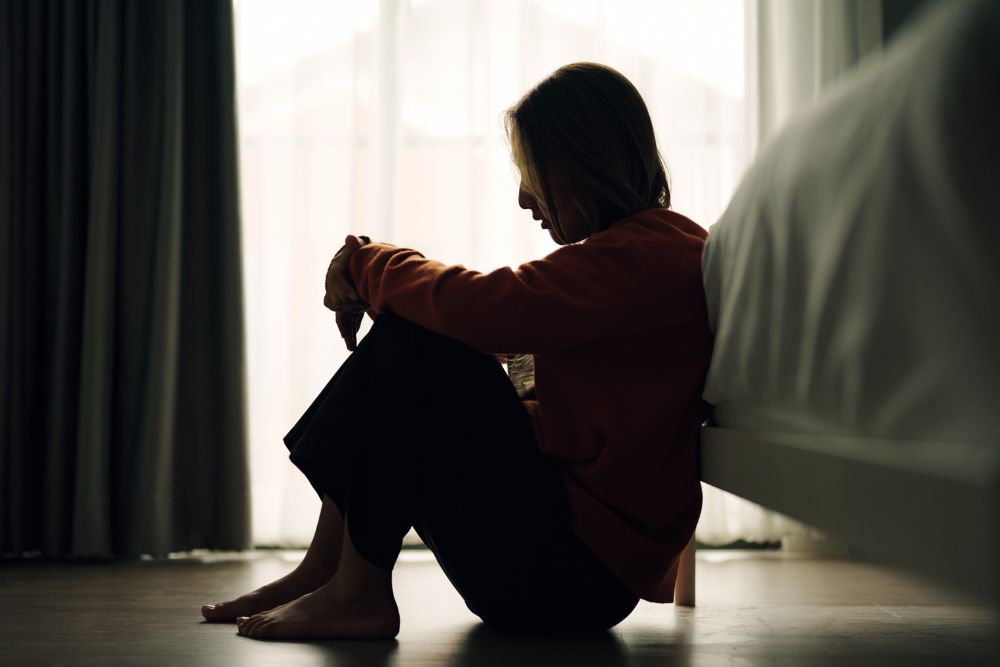In an ideal world, we might expect to feel peaceful after deciding to seek help. But anticipating a little—or a lot—of emotional turmoil is more realistic, given how much havoc substances can wreak on our brains and emotional processing. That’s why, despite being the right choice, entering residential treatment in South Carolina with us at Waypoint Recovery Center can feel like walking into a storm.
You might show up angry, overwhelmed, irritable, shut down, or sobbing for reasons you can’t articulate. That doesn’t mean you’ve made a mistake—it means you’re finally experiencing your emotions, and that can be terrifying without substances.
With time, therapy, and support from others in the same boat, your internal world will gradually calm down. This guide will walk you through the emotions you can expect in early recovery, why they may feel so intense, and offer tips to help you regulate while riding the early recovery rollercoaster.
Emotions to Expect in Early Recovery
If you struggle with substances, you might be in the habit of suppressing your feelings, sometimes for decades. Once you stop using, you might feel like the world is collapsing on you, and the traumas you never wanted to remember suddenly boil up to your mind’s surface.
Here are some everyday emotional experiences and what they might look like, sometimes as soon as you come in for detox services:
- Rage. You might lash out at staff trying to help, or feel furious with family for no clear reason. These outbursts can stem from unresolved resentment or the discomfort that can accompany intense feelings that substances or alcohol once numbed away.
- Deep guilt or shame. You might start piecing together mistakes you made, cruel words you said, or embarrassing actions you took while you were under the influence of drugs or alcohol. While deeply painful, feeling something — especially if it’s negative — can be a doorway to self-awareness and healing.
- Debilitating sadness. Some days, you may not want to get out of bed or continue existing in a substance-free space. You’re not weak, you’re just adjusting.
- Anxiety. Your thoughts may race or replay on loop, or you may feel like something bad is about to happen every other moment. This can happen when you’re unable to access the substances that became your coping mechanism for stress.
- Loneliness. Even surrounded by people, you may feel isolated. You may be missing your old lifestyle, even if it hurt you, or perhaps feel disconnected from your treatment process.
Why Early Recovery Emotions Spike and Tips For Regulating
Substances might bury, complicate, or even worsen emotions. Research backs this up: individuals with substance use disorders typically show more difficulty managing emotions than those without. They tend to struggle with acting on impulse and coping with helpful strategies to regulate feelings rather than drinking or using drugs.
To complicate early recovery even further, you may not only struggle with negative feelings, but also with feeling good. That effect can be a consequence of long-term substance use, which can severely throw off your brain’s reward system, blocking you from experiencing positive moments or feeling motivated without substances.
Here’s more insight into what that struggle can look like if you’re in early recovery for Alcohol Use Disorder (AUD):
- Flat or numb feelings. Even during fun moments, you may not feel much. This emotional blunting is often tied to early withdrawal and brain chemistry shifts.
- Emotional confusion. You might not be sure if you’re sad, stressed, or angry—just that you feel bad. That lack of emotion differentiation can make it harder to manage what you’re feeling in the moment.
- Mood swings. One minute you’re feeling okay, and the next you’re agitated or on the verge of tears. That can happen as your brain relearns how to regulate stress without alcohol.
Emotional troubles may look different for people just beginning to recover from Opioid Use Disorder (OUD) or a similar issue:
- Anhedonia (inability to feel joy). You might notice that everyday pleasures—music, a meal, even a laugh—don’t feel good anymore. This is often because opioid use can dampen your ability to experience natural rewards.
- Low motivation. When your brain’s reward system gets disrupted, it’s harder to get excited or hopeful. This can feed into cravings and make recovery feel pointless, even when it’s not.
- Overwhelmed by stress. Without the numbing effect of opioids, daily stressors might feel impossible to manage.
Tips For Regulating Early Recovery Emotions
We can help you learn and implement these strategies for emotional regulation in individual therapy:
- Learn to name your emotions
- Practice mindfulness
- Reach for connection, not perfection
- Remember, the storm will pass
Receive Support in South Carolina
You don’t have to face this emotional rollercoaster alone. At Waypoint Recovery Center, we’ll walk with you—whether you’re staying with us in residential treatment in Cameron, SC, or participating in our intensive outpatient program in North Charleston. We’re here to help you find calm, clarity, and confidence again. Contact us today to learn how we can support you or your loved one.





